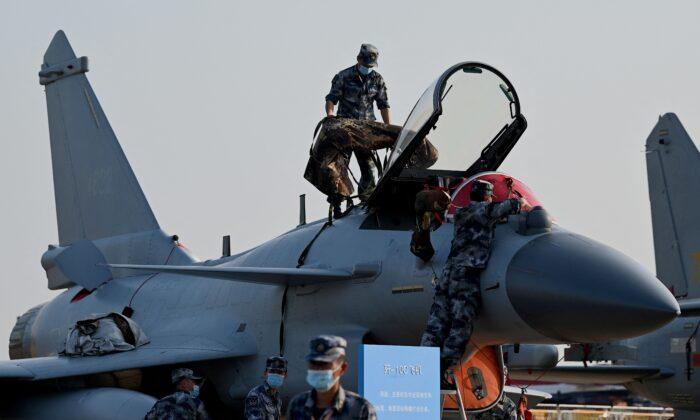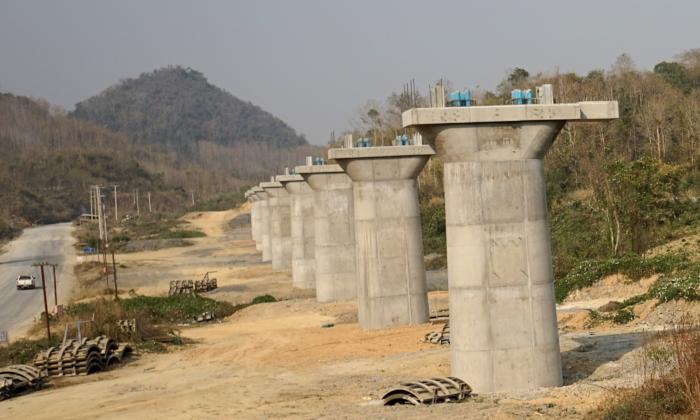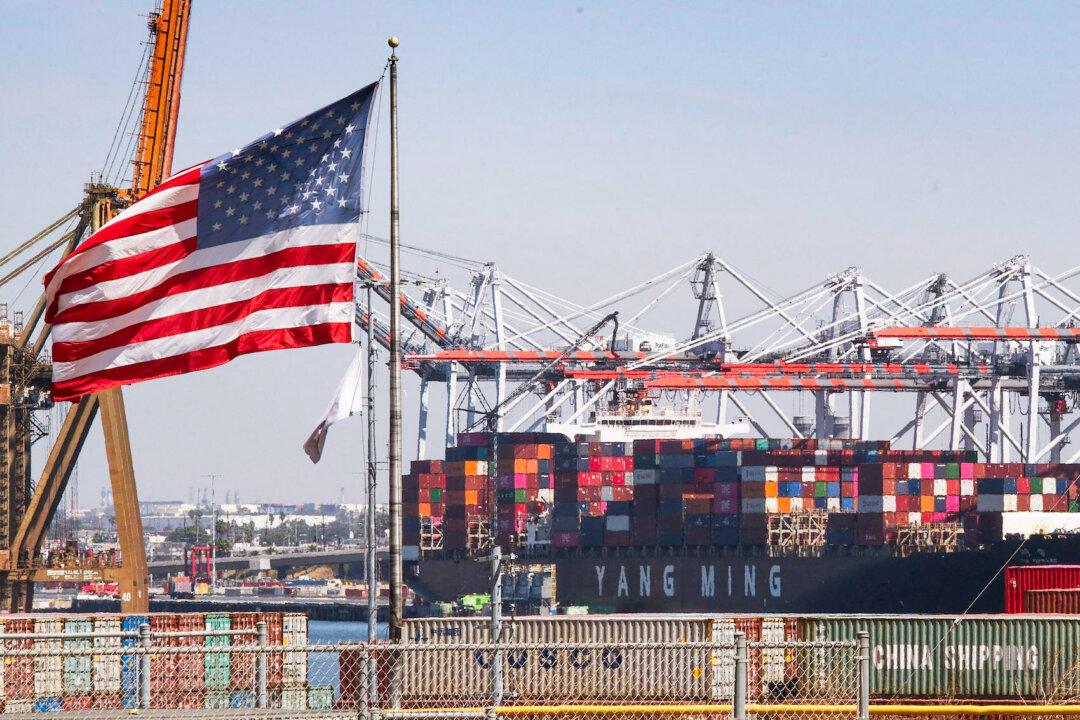Commentary
Washington is intensifying restrictions on U.S. investments in China and Chinese investments in the United States. One of the primary reasons for these restrictions is China’s aggressive policy called military-civil fusion (MCF). Beijing depends on MCF to expedite China’s development of advanced technology and weapons through the cooperation of private companies and government entities.
According to a 2021 U.S. Department of State report on China’s MCF program, which Chinese leader Xi Jinping is expected to expand in his third term, “joint research institutions, academia, and private firms are all being exploited to build the PLA’s future military systems—often without their knowledge or consent.”
The European Parliament issued a report in November outlining China’s economic coercion, asserting that Beijing so cleverly masks forced technology transfer and other forms of Chinese coercion that they are difficult to prosecute at the World Trade Organization. Acts of economic coercion are frequently carried out through private companies rather than by government agencies. And foreign companies, which are the victims, are often hesitant to report the incidents for fear of losing market access. The report also states that experts expect economic coercion to intensify during Xi’s third term.
According to a Nov. 8 White House briefing, MCF increases the size of the Chinese Communist Party’s (CCP) “military-industrial complex by compelling civilian Chinese companies to support its military and intelligence activities.” For American investors, this means that by investing in private or state-owned Chinese companies, they may be funneling money into the CCP’s weapons development programs.
Beijing has a stated strategy to develop the People’s Liberation Army (PLA) into a “world-class military” by 2049, a goal that can only be achieved through the expansion of MCF. As chairman of both the CCP’s Central Military Commission and the Central Commission for Military-Civil Fusion Development, Xi personally oversees the strategy’s implementation.

A People's Liberation Army (PLA) Air Force WZ-7 high-altitude reconnaissance drone is seen a day before the 13th China International Aviation and Aerospace Exhibition in Zhuhai, in southern China's Guangdong Province, on Sept. 27, 2021. Noel Celis/AFP via Getty Images
The CCP believes that advanced technology, such as artificial intelligence (AI), will drive the next evolution of warfare, and MCF is critical to Beijing’s goal of transitioning to “intelligent warfare.” Apart from AI, other technologies that U.S. regulators are attempting to prevent Beijing from acquiring include quantum computing, big data, semiconductors, and 5G, as well as advanced nuclear and aerospace technologies.
Intelligence gathering, espionage, and theft are not the only ways the CCP acquires U.S. technology. The Chinese regime also utilizes the recruitment of U.S. scientists and experts, funds U.S. academics and researchers, and collaborates with U.S. research and educational institutions.
Another tool in Beijing’s arsenal is forced technology transfer. Under Chinese law, in order to gain access to Chinese markets, American firms are often required to enter into joint ventures with Chinese companies, which are then in a position to obtain American technology.
By increasingly allowing private companies to carry out military research, the CCP is blurring the lines between private and government entities, making it more difficult for U.S. regulators to prevent funding or technology from flowing from U.S. entities into the People’s Liberation Army (PLA).

Charles Lieber leaves federal court after he and two Chinese nationals were charged with lying about their alleged links to the Chinese regime, in Boston, Mass., on Jan. 30, 2020. Katherine Taylor/Reuters
The FBI has identified China as the country that has stolen the most U.S. data. Consequently, with good reason, the bureau has called for greater scrutiny of Chinese students and researchers in the United States. The CCP’s China Scholarship Council requires academic scholarship recipients to report on their research work overseas.
Restrictions
The current round of U.S. restrictions is a continuation of Trump administration measures to prevent Chinese acquisition of U.S. technology. This includes deeper scrutiny of investment, trade, and academic ties between American and Chinese institutions.On Nov. 12, the Biden administration extended Executive Order 13959, which prevents U.S. persons and entities from investing in PLA-related companies. The order explicitly mentions MCF as a cause of concern as it obscures ties to the military and makes it difficult for authorities to detect and regulate.
U.S. investment controls are also ramping up. The Holding Foreign Companies Accountable Act forces U.S.-listed Chinese companies to disclose if they are state-owned or state-controlled. Additionally, the new enforcement of audit oversight by the Securities and Exchange Commission (SEC) and the Public Company Accounting Oversight Board (PCAOB) could result in delisting Chinese companies from U.S. exchanges. Delisting means cutting off U.S. funding for PLA research and development programs.
New U.S. export controls will impede Chinese companies from developing cutting-edge technologies with military applications. U.S. restrictions have been placed and are expected to be expanded to cover the sale of advanced semiconductors and integrated circuits, which are crucial to developing China’s AI systems. Additionally, new U.S. rules will prevent U.S. individuals and companies from aiding China in producing such chips in China. Such rules are intended to hinder China’s development of supercomputers with military applications, as well as weapons of mass destruction and supercomputing-enhanced war-fighting capabilities.
As a result of the new U.S. restrictions, U.S. suppliers have reportedly stopped selling to Chinese chipmakers, and numerous U.S. employees in the Chinese semiconductor industry have resigned.
Views expressed in this article are opinions of the author and do not necessarily reflect the views of The Epoch Times.





